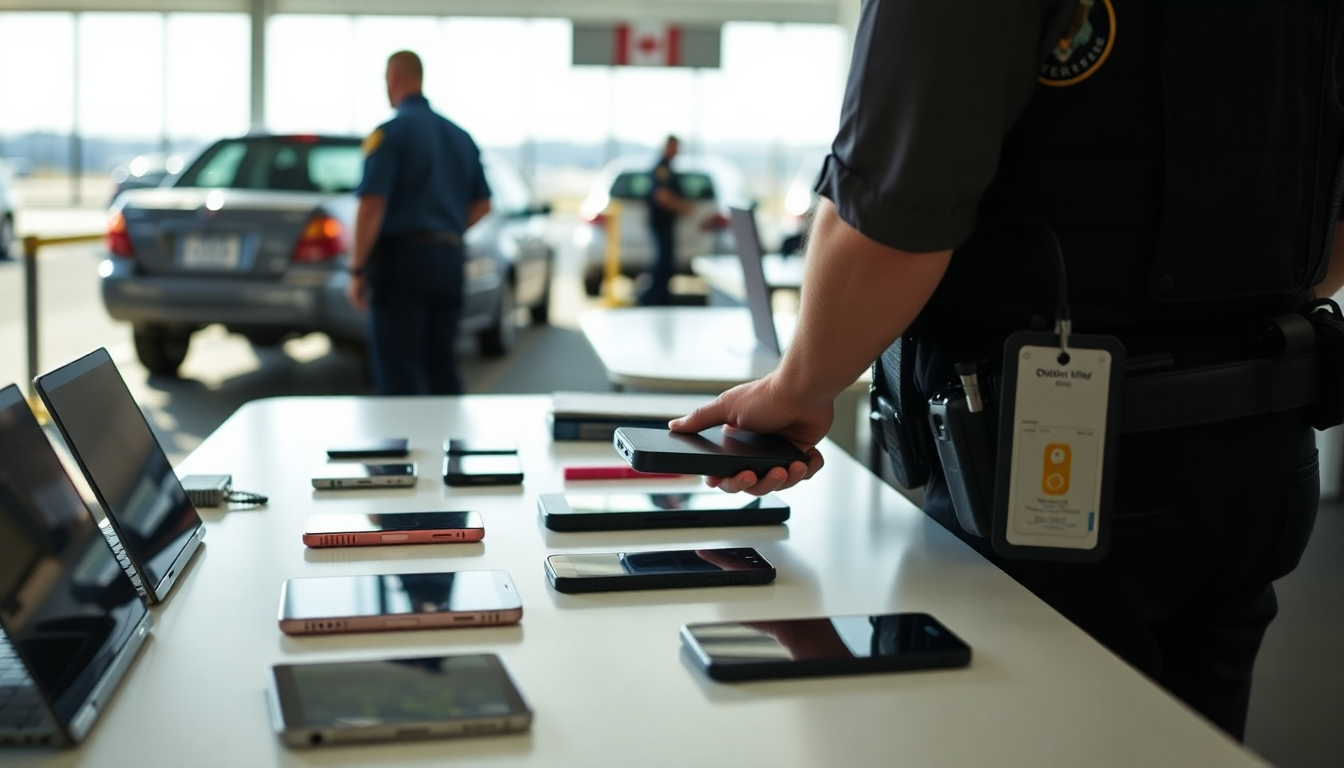Table of Contents
In recent months, a noticeable trend has emerged: more electronic devices are being searched by U.S. Customs and Border Protection (CBP) agents. This uptick is part of a broader strategy aimed at enhancing security, especially under the current administration.
As you gear up for a trip across the U.S. border, it’s essential to understand what these searches mean for your personal data and how to navigate customs smoothly.
The Current Landscape of Electronic Device Searches
According to the latest statistics from CBP, between April and June of this year, nearly 15,000 electronic devices were scrutinized at U.S.
borders. That’s a staggering 21% jump from the previous quarter! But what does this really mean? While it sounds alarming, it’s worth noting that only a tiny fraction of travelers—less than 0.01%—actually face these searches. However, for those targeted, the implications can be quite serious.
Border agents have the legal authority to inspect electronic devices belonging to travelers, no matter their citizenship. This includes smartphones, laptops, tablets, and other digital media. Over the past decade, the number of these searches has steadily increased, marking a significant shift toward tighter border control measures.
Despite the rising numbers, officials insist that the increase in inspections isn’t politically driven. A spokesperson from the Department of Homeland Security emphasized that the focus is on securing the border, assuring law-abiding travelers that there’s nothing to fear.
Nevertheless, it’s crucial for travelers to stay informed about their rights during these inspections.
Understanding the Search Process and Your Rights
So, what can you expect if you’re entering the U.S.? Travelers are required to present their electronic devices ready for examination.
This means you may need to provide passwords and ensure that your devices aren’t connected to the internet—agents can’t access remote data stored in the cloud. They’re allowed to inspect emails, texts, and other content on your device, so it’s wise to be prepared and manage your digital footprint accordingly.
It’s important to know that refusing to comply with a search request can lead to serious consequences, such as denial of entry or detention. Therefore, being aware of the potential risks and taking steps to protect your personal data is essential. Immigration lawyers suggest a few strategies to enhance your privacy, like clearing your browsing history, deleting sensitive information, or using a travel-only device that doesn’t store private data.
Additionally, the Canadian government has updated its travel advice to warn travelers of increased scrutiny at U.S. ports of entry. This change has sparked concerns, especially among Canadian travelers, who may find themselves facing the same rigorous inspections as those from other countries.
Practical Tips for Travelers
With all this in mind, what can you do to protect your information? Before you travel, consider deleting any sensitive data from your devices—this includes personal images or records related to cannabis use, which remains illegal federally in the U.S. You might also want to temporarily disable social media apps to prevent agents from accessing potentially compromising content.
It’s also smart to have all your travel documents at the ready and to respond clearly and honestly to border agents’ questions. Understanding the legal framework around these searches can empower you to navigate the process more smoothly.
Ultimately, although the heightened focus on electronic device searches may seem intimidating, being informed and prepared can help you mitigate risks. By taking the right precautions, you can protect your privacy while complying with border regulations.
Looking Ahead
The trend of increased scrutiny at U.S. borders isn’t likely to fade anytime soon. With potential advancements in digital forensics capabilities within CBP on the horizon, travelers should stay alert and adaptable. As technology evolves, so too will the methods used to ensure national security. Keeping yourself updated on your rights and responsibilities while crossing international boundaries is key.
In conclusion, while the landscape of border security may seem more complex than ever, understanding the processes and preparing adequately can significantly enhance your travel experience. Staying aware and adapting to the changing dynamics of border inspections is essential for protecting your personal privacy and ensuring a smooth passage through customs.





